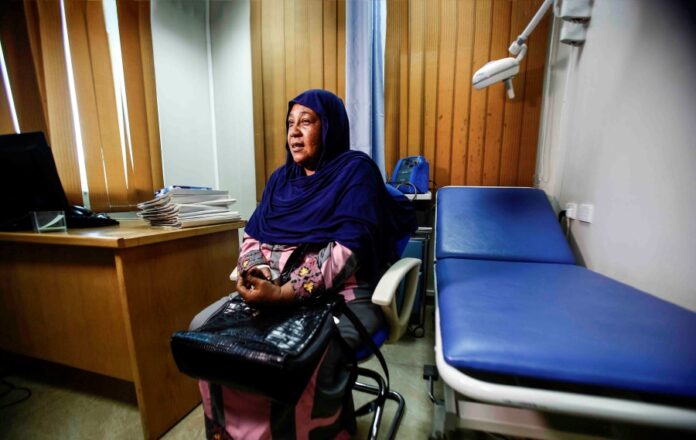A recent study by Ibro, et al. (2024) titled “Mapping the evidence on integrated service delivery for non-communicable and infectious disease comorbidity in sub-Saharan Africa: protocol for a scoping review” published in BMJ Open, shows that Sub-Saharan Africa faces a significant burden of both non-communicable diseases (NCDs) and infectious diseases (IDs), with high comorbidity rates.
“
Integrated care models are crucial for managing NCD-ID comorbidities in sub-Saharan Africa, improving patient outcomes.– Ibro, et al. 2024
The article explores the healthcare challenges in sub-Saharan Africa (SSA) due to the simultaneous presence of infectious diseases (IDs) and non-communicable diseases (NCDs). It emphasizes the importance of developing integrated care models to manage these comorbidities effectively. The study is guided by the Joanna Briggs Institute (JBI) framework for scoping reviews and involves an extensive search of peer-reviewed and grey literature from 2018 onward. The goal is to identify and analyze integrated care models for managing NCD-ID comorbidities in SSA. The article also addresses the unique obstacles faced by healthcare systems in SSA, such as resource constraints and fragmented services, which make managing these comorbidities more challenging.
How the Study was Conducted
The authors searched both peer-reviewed and grey literature from 2018 onwards to gather relevant studies and data. The collected data was analyzed to identify and evaluate integrated care models for managing non-communicable diseases (NCDs) and infectious diseases (IDs) comorbidities in sub-Saharan Africa (SSA). Since the study synthesized already published data, ethical approval was not required. This approach allowed the researchers to systematically review and synthesize existing knowledge on integrated care models for NCD-ID comorbidities in SSA.
What the Authors Found
The authors found that Sub-Saharan Africa faces a significant burden of both non-communicable diseases (NCDs) and infectious diseases (IDs), with high comorbidity rates. The study posits that the region’s healthcare systems are often fragmented and underresourced, making it difficult to address the complex needs of patients with both NCDs and IDs. In addition, the authors also found that integrated care models are essential for improving patient outcomes, optimizing resource allocation, and reducing healthcare costs, and there is variability in the uptake and implementation of integrated care models across different countries in the region, influenced by systemic, cultural, and policy-related factors.
Why is this Important
Healthcare Improvement: By identifying effective integrated care models, the study aims to improve the management of patients with both non-communicable diseases (NCDs) and infectious diseases (IDs) in sub-Saharan Africa (SSA). This can lead to better health outcomes and quality of life for patients.
Resource Optimization: Integrated care models can help optimize the use of limited healthcare resources in SSA. This is crucial in a region where healthcare systems are often under-resourced and fragmented.
Policy and Practice: The findings can inform healthcare policies and practices, guiding the development and implementation of integrated care strategies. This can lead to more efficient and effective healthcare delivery.
Research and Knowledge: The study contributes to the existing body of knowledge on NCD-ID comorbidities and integrated care. It highlights gaps in current research and suggests areas for future investigation.
Global Health: Addressing the dual burden of NCDs and IDs is a global health priority. The insights from this study can be applied to other regions facing similar challenges, promoting global health equity.
What the Authors Recommended
- The authors emphasize the need for healthcare systems in sub-Saharan Africa to adopt and implement integrated care models to effectively manage the comorbidities of non-communicable diseases (NCDs) and infectious diseases (IDs).
- The study calls for stronger policy support to facilitate the integration of services. This includes creating policies that promote collaboration between different healthcare sectors and stakeholders.
- The authors highlight the importance of allocating sufficient resources to support integrated care initiatives. This includes financial, human, and infrastructure resources.
- The authors also recommend investing in training and capacity building for healthcare workers to ensure they are equipped to deliver integrated care.
- Continuous research and monitoring are recommended to evaluate the effectiveness of integrated care models and to identify areas for improvement.
In conclusion, the study by Ibro et al. underscores the urgent need for integrated care models to address the dual burden of non-communicable and infectious diseases in sub-Saharan Africa. By fostering collaboration, optimizing resources, and supporting healthcare workers, these models can significantly enhance patient outcomes and strengthen healthcare systems across the region. The findings serve as a crucial call to action for policymakers, healthcare providers, and researchers to prioritize and invest in integrated care strategies, paving the way for more effective, equitable, and sustainable healthcare delivery in sub-Saharan Africa and beyond.
















 The African Research (AR) Index is a comprehensive scholarly directory and database focused explicitly on journal publishers that publish and disseminate African research.
The African Research (AR) Index is a comprehensive scholarly directory and database focused explicitly on journal publishers that publish and disseminate African research.

